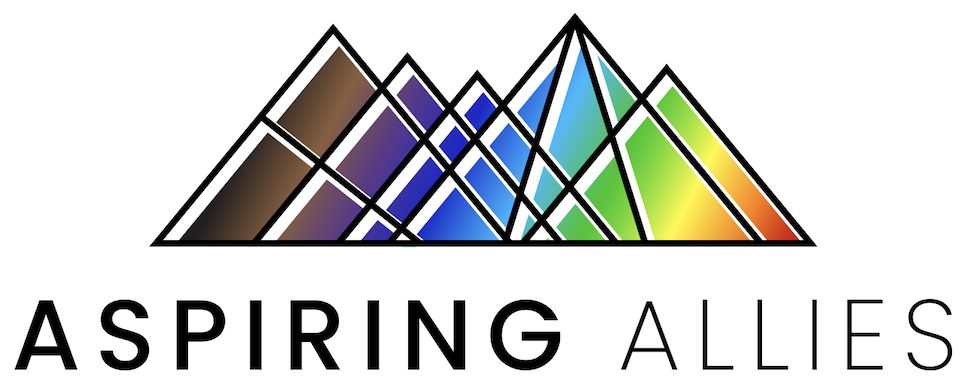One of the hardest things about being an ally is calling others out on problematic language and/or behaviors. As someone who personally does not like conflict, I know firsthand how difficult it can be to tell another person that the language that they are using is hurtful, even if unintentionally so. I recently saw some advice that you should let someone know if they have something in their teeth (or the like) if they can fix it in 10 seconds or less. Language is something that can be fixed within this rule, even if it takes a little time for someone to fully understand. Over the past few years, I have heard more people utilize “calling in” versus “calling out” because it takes courage to let people know that what they are saying and doing may be harmful to others and we want to draw them into the conversation and not ostracize them. Therefore, I will use “calling in” throughout this blog post.
Who You Are
The most important consideration when thinking about calling people in is who you are. Are you an introvert or an extrovert? Are you outgoing or shy? Are you direct or do you beat around the bush? Your personality is related so much to calling people in because it defines who you are and how you interact with others. For example, I am very direct and outgoing when I’m working with college students and my own team at work; however, I am more timid when it comes to my peers and colleagues. Thus, my approach to calling someone in is different depending on my audience.
Time & Place
If someone says something ignorant in an important business meeting, do you say something right then and there? What about at a holiday dinner with family? We are always navigating relationships in all situations, so you should consider what makes sense for that space. I am personally not a fan of calling someone in when we are in a meeting or with a group, but that comes back to who I am. I would rather follow up with them after a meeting, unless the conversation was specifically focused on inclusion, diversity, equity, and access (IDEA). If the conversation was about IDEA, then I would argue that calling in is an expectation. For me, the point is never to embarrass someone else, especially not a staff member or colleague. I don’t want to turn them off to IDEA work, but I want to hold them accountable, so I follow up with them after the meeting. This approach does not allow harmful things to slide, even if it is not handled in the moment. I would also follow up with anyone who may have been impacted by what was said.
Power Dynamics
As we navigate relationships, we are also navigating power dynamics at each and every turn. For example, if I say something to someone who outranks me on an organizational chart, there may be an unintended consequence if they are not open to receiving feedback. That being said, if you don’t think you can deliver the feedback without retribution, then you should consider if someone else can. Could your boss deliver the feedback if they are peers with the person or could someone from their team do it? In contrast, if I call one of my staff members in, that confrontation could really worry them. When this happens, I usually check in with them again just about life and work to reassure them that I am not harboring resentment for something they said or did.
Give Yourself Grace
I write about being a product of our socialization often and sometimes, we don’t pick up on a comment or word usage that negatively impacts someone because of our own experiences. In these instances, give yourself grace, and do better in the future. There is little else you can do, and beating yourself up about something you didn’t know isn’t going to help. If someone brings up something to you after a meeting or event, you can still follow up with the person who said it. There isn’t a quick turnaround rule, rather, you should follow up as soon as possible to call them in.
Phrases
Phrases that I often utilize when calling people in are:
- What did you mean by that? This question makes people reflect on what they said. Usually they know that the word(s) that they used was inappropriate or outdated.
- Can you say more about what you meant there?
- I think someone might think you meant ___ by that, but I’m not sure you did? Could you rephrase?
- How might what you said reflect a broader, harmful message about others?
- Please choose another word. This is informal, but direct.
Calling people in is not easy. It takes practice and even after years of doing it, it can still be difficult. No matter how difficult it is, it is more difficult for those with marginalized identities to navigate worlds in which they have to constantly be emotionally prepared for harmful language. It is our role and responsibility as aspiring allies to take on the emotional load as much as possible to co-create a better world.
